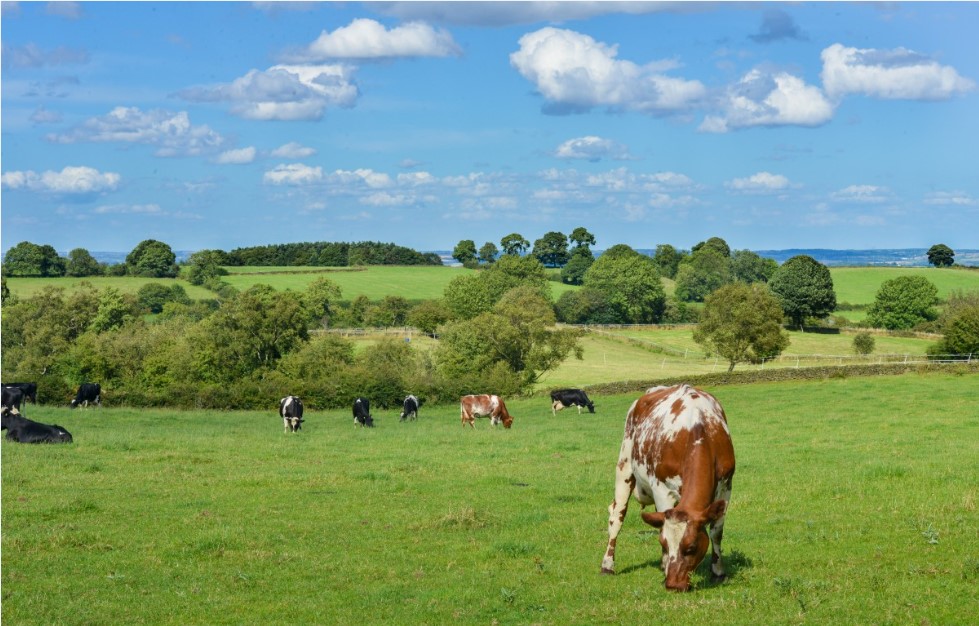Agriculture accounts for 11 percent of greenhouse gas emissions in the EU and 70 percent of those come directly from livestock agriculture. How can the agriculture sector contribute to a greener EU? Join this online debate with experts from Denmark, Croatia and Belgium.
Date: Wednesday, September 6, 2023 Time: 7:30-8:30 pm
Venue: Online (Zoom)
A new policy period for a more modern (greener and fairer) common European Agricultural Policy (CAP) started on January 1, 2023. One of its main pillars focuses on a sustainable future for European farmers with climate and environmental welfare at the heart of rural development.
This new theoretical framework came not a second too soon. The climate ambitions within the Green Deal are high and the deadlines to meet the targets are dangerously close. To make the ambitions within the ‘farm to fork’ strategy and the ‘biodiversity strategy’ achievable, the CAP could not be left behind.
Moreover, a new approach for European farmers themselves was badly needed. Indeed, global warming is making itself strongly felt in this sector in all EU member states. Extreme weather conditions threaten harvests, groundwater is shrinking and biodiversity continues to decline. At the same time, agriculture itself is responsible for about 10% of Europe’s CO2 emissions.
In this debate, we explore how these policies translate into practice and which innovative techniques are applied. Our national experts share their vision of a sustainable future for farmers and provide some examples of good practices or pioneering projects to inspire others.
Some of the questions that we will focus on in the debate are: What is the agriculture of the future? How far is Croatia, Denmark, and Belgium from reaching the EU’s climate goals within agriculture? What innovative agricultural projects are there in the three countries that can contribute to the green transition? What trends are noticeable in the agricultural landscape in Croatia, Denmark and Belgium?
Join this online debate with national experts from Croatia, Denmark and Belgium.
Jørgen Eivind Olesen is professor and head of department of Agroecology at the University of Aarhus. He is also an adjunct professor at the University of Copenhagen and at Gansu Agricultural Univercity in China. His research focuses on the adaption of agricultural production systems to climate change, emission of greenhouse gases from agriculture the interaction between acricultural activities and the environment.
Vladimir Margeta is an associate professor at the Faculty of Agrobiotechnical Sciences in Osijek. He is a member of the Department for Animal Production and Biotechnology, where he teaches at the Pig Breeding and Biological and Zootechnical Principles in Pig Breeding modules. His scientific and professional interest is among others ecological agriculture, the Green transition, sustainable production systems in agriculture and traditional agriculture.
Kurt Sannen is a biological farmer and consultant at Bolhuis in Diest, Belgium. With a master in agricultural engineering and work experiences in NGO’s, government and his own business, his career is focused on Rural Development and Sustainability and sustainable agriculture and biodiversity.
How to attend:
The event is free, but registration is required.
Sign up for the debate here: How can agriculture contribute to green transition in the EU? – Nederlands (europahuis.be)
The link will take you to a Zoom registration link which Crosol is the owner of. Crosol is handling the practical registration.
You will receive a link the same day as the online meeting. You will need the link to log in to the meeting from your computer.
The online-debate is held in a cooperation between DEO, Crosol and Europahuis Ryckevelde and has received financial support from Erasmus+.
